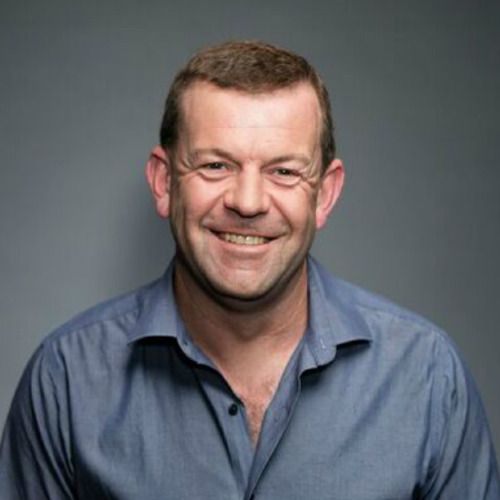Episode 112
112 - Stop Judging And Transform Your Relationship Today
For more information on how to control your anger, visit angersecrets.com.
Judgmental thinking is a pervasive issue that sabotages personal relationships and impacts emotional well-being. This episode of the Anger Secrets podcast delves into the instinctive human tendency to judge others, examining its origins in our evolutionary past where quick assessments of people and situations were crucial for survival.
Alastair Duhs, the podcast host, emphasises how this survival instinct has morphed into a detrimental habit that can create conflict and disconnect in modern relationships.
By sharing a powerful ancient Buddhist story about a farmer and his horse, he illustrates that life events are rarely black and white; what seems like a misfortune today can turn into a blessing tomorrow. This perspective shift is key to fostering understanding and compassion instead of judgment.
Key Takeaways:
- Judgmental thinking can sabotage relationships, leading to arguments and eroding trust over time.
- To foster understanding and compassion, it's crucial to pause before making judgments about others.
- Embracing the word 'maybe' can help you maintain an open mind in difficult situations.
- Judging others limits your perspective and hinders personal growth and understanding.
- Practicing curiosity instead of judgment can significantly improve communication in relationships.
- The story of the farmer illustrates that life’s events are often unpredictable and complex.
Links referenced in this episode:
For more information (and FREE resources) of how to control your anger, visit angersecrets.com.
For a FREE training on how to control your anger, visit angersecrets.com/training/.
To learn more about The Complete Anger Management System, visit angersecrets.com/course/.
Transcript
Let's be honest for a moment.
Speaker B:Have you ever silently criticised someone else?
Speaker B:Maybe it's your partner, a friend, or even a stranger at the grocery store you may have judged their choices, their behaviour, or how they say or do things.
Speaker B:Whatever it may be, we've all been guilty of judgmental thinking at some point.
Speaker B:But here's something you should know.
Speaker B:Constantly judging others will sabotage your relationships, fuel unnecessary arguments, and ultimately rob you of any chance of having a healthy and happy relationship.
Speaker B:In today's episode of the Anger Secrets podcast, I dive into the common issue of judgmental thinking and discuss why we're often so quick to judge others, the hidden dangers of this mindset, and most importantly, how to break free from judgmental thinking.
Speaker B:So if you're ready to swap judgmental thinking for understanding and compassion, stick with me.
Speaker B:This episode might be the wake up call you need.
Speaker B:Hello and welcome to episode 112 of the Anger Secrets podcast.
Speaker B:I'm your host, Alistair Dewes, and For the last 30 years I have taught.
Alistair Dewes:Over 15,000 men and women to control their anger, master their emotions, and create calmer, happier and more loving relationships.
Alistair Dewes:In this podcast, I'll share the proven tools and techniques I've used to help my clients control their anger and transform their lives.
Alistair Dewes:If you want free support on your anger management journey, Visit my website, anger secrets.com There you'll find a powerful free training and the opportunity to book a free 30 minute anger assessment.
Alistair Dewes:Call with me.
Alistair Dewes:Whether you're dealing with explosive anger, silent resentment, or just want to build a better relationship, I'd love to help you.
Alistair Dewes:Now, let's dive into today's topic.
Alistair Dewes:Is judgmental thinking destroying your relationship?
Alistair Dewes:Let's start by asking a simple yet profound why are many people so quick to judge others?
Alistair Dewes:The truth is, judging others is part of human nature.
Alistair Dewes:It's part of how humans have survived for thousands of years.
Alistair Dewes:Throughout our evolutionary past, we have needed to make snap judgments about people and situations to stay safe.
Alistair Dewes:Our brains are wired to assess everything and everyone around us almost instantly.
Alistair Dewes:Is this person a friend or a threat?
Alistair Dewes:Is the situation good or bad?
Alistair Dewes:These quick judgments have always been critical for survival.
Alistair Dewes:But here's the catch.
Alistair Dewes:What was once a survival skill can now sabotage your relationships.
Alistair Dewes:Fleeting thoughts such as I wouldn't have done it that way can quickly spiral into a habit of constantly finding fault in others, especially with those closest to us.
Alistair Dewes:Of course, being judgmental is not just an individual problem.
Alistair Dewes:It is everywhere in the world around us.
Alistair Dewes:Everywhere you turn, people are obsessed with being right.
Alistair Dewes:From heated political debates to pointless online debates.
Alistair Dewes:Modern Western culture has just about made being judgmental a sport.
Alistair Dewes:This mindset is almost certain to seep into your personal life.
Alistair Dewes:For example, think about your relationship.
Alistair Dewes:How often do disagreements with your partner come down to this simple dynamic?
Alistair Dewes:You and your partner being both convinced that you're right about something usually relatively minor, and battling it out to prove your point.
Alistair Dewes:As you probably know, this I'm right, you're wrong approach leads to one ongoing conflict.
Alistair Dewes:Unfortunately, this conflict often escalates into something more damaging and ultimately erodes the trust and connection in your relationship.
Alistair Dewes:So with that said, what is the impact of being judgmental?
Alistair Dewes:For starters, judgmental thinking creates walls instead of bridges.
Alistair Dewes:When you judge someone, whether it's your partner, a co worker, or even a stranger, you're essentially saying, I know better than you.
Alistair Dewes:That never feels good.
Alistair Dewes:On the receiving end, people feel dismissed, misunderstood, or even attacked.
Alistair Dewes:But it doesn't stop there.
Alistair Dewes:Judging others blinds you to new perspectives.
Alistair Dewes:When you're stuck in the mindset of I'm right and someone else is wrong, you shut yourself off from growth, learning and the richness of understanding someone else's experience.
Alistair Dewes:So as you might understand, being judgmental doesn't just harm others, it hurts you.
Alistair Dewes:It keeps you locked in a cycle of negativity, making it harder to connect, love and truly thrive in your relationships.
Alistair Dewes:So what is the solution?
Alistair Dewes:How do you break free from this cycle of judgmental thinking and start embracing others with more understanding and compassion?
Alistair Dewes:To answer these questions, let me introduce you to one of my favourite stories, an ancient Buddhist story that teaches a powerful lesson about judgmental thinking.
Alistair Dewes:The story is set in a quiet, sun soaked village deep in the heart of ancient China.
Alistair Dewes:In this village lives a quiet farmer, a man known for his calmness and wise perspective on life.
Alistair Dewes:One day, after years of saving, the farmer buys a beautiful strong horse.
Alistair Dewes:The other villagers from the village gather around, marvelling at the magnificent animal.
Alistair Dewes:You're so lucky, they say.
Alistair Dewes:This horse will make your life so much easier.
Alistair Dewes:The farmer simply smiles and replies, maybe.
Alistair Dewes:Who knows?
Alistair Dewes:The following day, disaster strikes.
Alistair Dewes:The horse escapes, galloping off into the wilderness.
Alistair Dewes:The villagers rush to the farmer's house, shaking their heads in sympathy.
Alistair Dewes:What terrible luck.
Alistair Dewes:They cry.
Alistair Dewes:How will you manage now without your horse?
Alistair Dewes:But the farmer, calm as ever, responds with his usual comment, maybe.
Alistair Dewes:Who knows?
Alistair Dewes:The following day, to everyone's amazement, the horse returns.
Alistair Dewes:But not alone.
Alistair Dewes:It brings back a whole herd of wild horses.
Alistair Dewes:The villagers rush to the farmer again, this time congratulating him on his fortune.
Alistair Dewes:Now you have many horses they Say, you are the luckiest man in the village.
Alistair Dewes:Still, the farmer remains unfazed.
Alistair Dewes:Maybe, who knows?
Alistair Dewes:He says once more.
Alistair Dewes:But fate isn't done with the farmer yet.
Alistair Dewes:While trying to tame one of the wild horses, the farmer's eldest son falls off the horse, breaking his leg.
Alistair Dewes:The villagers rush over again, their faces heavy with concern.
Alistair Dewes:How unlucky, they say.
Alistair Dewes:Your son won't be able to help you now.
Alistair Dewes:The farmer responds as he always does.
Alistair Dewes:Maybe.
Alistair Dewes:Who knows?
Alistair Dewes:A week later, the village receives word of an invasion.
Alistair Dewes:The Chinese army sweeps through, conscripting every able bodied young man to fight in the war.
Alistair Dewes:But the farmer's son, with his broken leg, is left behind.
Alistair Dewes:The villagers, realizing what has happened, return to the farmer.
Alistair Dewes:You're so lucky, they say in awe.
Alistair Dewes:Your son has been spared.
Alistair Dewes:The farmer looks at them with his usual calm expression and says, maybe.
Alistair Dewes:Who knows?
Alistair Dewes:Of course, this story could go on forever.
Alistair Dewes:But the moral of the story is clear.
Alistair Dewes:Things are rarely as good or bad as they seem in the present moment.
Alistair Dewes:Life is unpredictable.
Alistair Dewes:And what seems like a disaster today might turn out to be a blessing tomorrow, and vice versa.
Alistair Dewes:When you judge events or people too quickly, you limit your ability to see the bigger picture.
Alistair Dewes:So how can you apply the lesson of the story of the farmer and his horse to your own life?
Alistair Dewes:Here are three simple but powerful tips I recommend to my clients to help them stop being so judgmental and to build stronger, more loving relationships.
Alistair Dewes:Tip 1.
Alistair Dewes:Pause before you judge.
Alistair Dewes:The next time you catch yourself jumping to negative conclusions about someone, whether it's your partner, a colleague, or even yourself, take a moment to pause.
Alistair Dewes:Ask yourself, could there be another way to see the situation?
Alistair Dewes:This small pause can open the door to greater understanding and empathy.
Alistair Dewes:Embrace the word maybe.
Alistair Dewes:In difficult times, when things seem bleak, like the farmer in the story, remind yourself that life is unpredictable.
Alistair Dewes:What seems wrong or frustrating in the present moment might hold unexpected blessings in the future.
Alistair Dewes:Practise saying maybe.
Alistair Dewes:Who knows?
Alistair Dewes:To train your mind to stay open and flexible, choose curiosity over judgment.
Alistair Dewes:Thirdly, instead of being right in your relationship or anywhere else, focus on being curious.
Alistair Dewes:For example, instead of telling your partner what you think, ask them about their perspective.
Alistair Dewes:Practice listening without interrupting.
Alistair Dewes:Try to understand their point of view, even if it's different from your own.
Alistair Dewes:You might be surprised at what you learn and how much closer it brings you.
Alistair Dewes:Remember, when you let go of the need to judge or control, you create space for connection, growth and mutual respect.
Alistair Dewes:This is the foundation of every great relationship.
Alistair Dewes:Ok, thank you for joining me for today's episode.
Alistair Dewes:Of the Anger Secrets Podcast and be sure to tune into the next episode to find out if you have anger issues.
Alistair Dewes:If you found this episode helpful, please follow this podcast and head over to your favourite podcast app and leave a quick rating and review.
Alistair Dewes:This helps other people struggling with anger find and benefit from this show.
Alistair Dewes:Remember too, for free support on your anger management journey, including a free training and the opportunity to book a free 30 minute anger assessment.
Alistair Dewes:Call with me, visit my website anger secrets.com or if you would like to control your anger once and for all, visit angersecrets.com course to learn more about my powerful online coaching program, the Complete Anger Management System.
Alistair Dewes:I look forward to helping you control your anger once and for all.
Alistair Dewes:Finally, remember, you can't control other people, but you can control yourself.
Alistair Dewes:I'll see you in the next episode.
Alistair Dewes:Take care.
Speaker C:The Anger Secrets Podcast is for general informational purposes only and does not constitute the practice of counseling, psychotherapy or any other professional health service.
Speaker C:No therapeutic relationship is implied or created by this podcast.
Speaker C:If you have mental health concerns of any type, please seek out the help of a local mental health professional.


